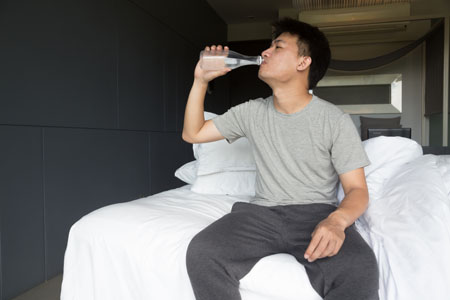Trace Amounts of Lithium in Drinking Water Associated with Lower Suicide Rates in Men
Studies in Japan, Austria, and Texas have reported that trace amounts of lithium in drinking water are associated with lower suicide rates. A new study seeks to clarify these findings by removing any statistical factors other than lithium levels that could produce these results.
The study, published in the Journal of Clinical Psychiatry, collected 434 lithium samples in drinking water over three years, and compared these with suicide rates in the population of 274 municipalities of Kyushi Island in Japan.
The researchers, led by Nobuyoshi Ishii, then controlled for size of population, proportion of elderly people, proportion of one-person households, proportion of people with a college education or more, proportion of people engaging in primary industry, overall unemployment rates, annual marriage rates, annual mean temperature, and annual savings in per person in Japan’s popular postal bank. In places with slightly higher trace levels of lithium in drinking water, there was a lower rate of suicides in men. Suicide rates for women and overall were not significantly associated with lithium levels.
Ratio of Cortisol to CRP May Affect Depression
New research suggests that the ratio of cortisol to C-reactive protein (CRP), a marker of inflammation, may be a biomarker of depression that affects men and women differently. In women, lower ratios of cortisol to CRP were associated with more severe depression symptoms, including poor quality sleep, sleep disturbances, and decreased extraversion. In men, higher ratios of cortisol to CRP were associated with more daytime disturbance and greater anxiety. The study by E.C. Suarez et al. was published in the journal Brain, Behavior, and Immunity.
Further work must be done to confirm whether low cortisol and high inflammation predicts depression in women, while the opposite (high cortisol and low inflammation) predicts depression in men.
Among Bipolar Patients, Women Spend More Time Depressed Than Men Do
An article by Lori Altshuler et al. (including this editor Robert M. Post) published in the American Journal of Psychiatry in 2010 presents research that among bipolar patients studied over a period of 7 years, women spent more time than men depressed. Women had higher rates of rapid cycling and of anxiety disorders, both of which were associated to higher rates of depression.




